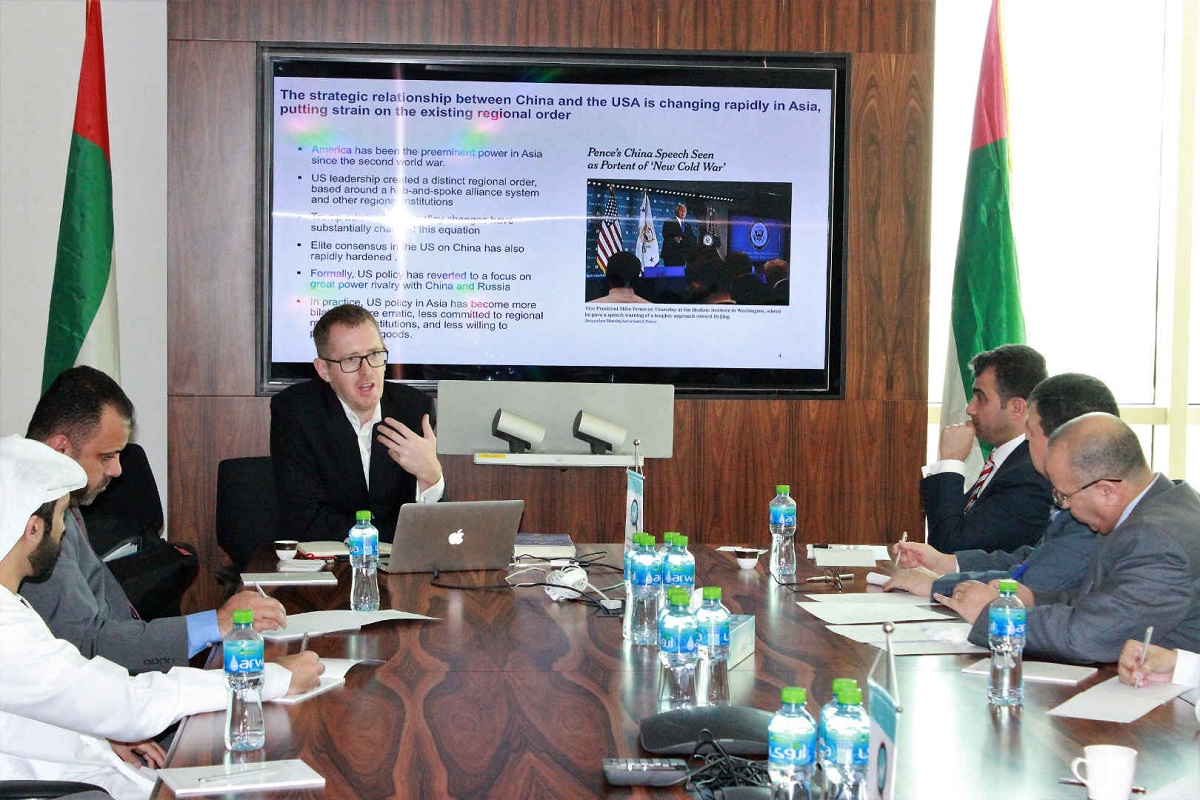
James Crabtree, Associate Professor in Practice at the LKY School was part of a roundtable discussion held at the Emirates Policy Center (EPC) in Abu Dhabi titled “The Geopolitical and Geostrategic Landscape in Asia”.
The presentation covered three issues. The first was the geostrategic balance in Asia. He pointed out that Asia is going through a geopolitical competition between China and the US in light of a rapid shift in the relationship between the two powers. This in turn, leads to change in the regional balance. It is ironic that despite the US-Chinese competition in Asia, the Trump administration, seems less engaged in the Asian regional order.
The second were the challenges facing China in its path to becoming a superpower. China has achieved high rates of economic growth for many years. However, economic forecasts point out that Beijing would not be able to keep up the same levels of growth in the future. It is not in China’s interest to escalate the trade war with the US and Beijing should quickly seek to negotiate a trade deal with Washington.
China's ongoing Belt, Road Initiative (BRI) is a highly ambitious project. It is not merely one element of China’s foreign policy, but a critical tool in its rise as a great power. However, it is difficult to put limits to this initiative as it involves 55 countries and encompasses a multitude of diverse land and sea infrastructure projects.
The BRI has received criticism from many countries. And despite common comparisons, is vastly different from the US Marshal Plan or the European Recovery Program that started following the devastation of World War II. Western countries claim that the BRI is a form of “debt-trap diplomacy” as was the case in Pakistan, Sri Lanka, and Malaysia. However, these protests should not to be overplayed. The BRI has also triggered a regional competition as countries like Japan have started to establish partnerships in infrastructure development. More transparency and more involvement of international institutions is needed so that China can ensure the success of the initiative.
The third issue focused on Asia’s regional order. All Asian nations have responded to China’s rise. The trade war launched by the Trump Administration against China, and Washington’s new disengagement policy has made Asian nations look at the US as an unreliable partner. Therefore, they feel the need to get closer to China and improve relations with their giant Asian neighbor.
Even though anti-China regional countries wish to limit Beijing’s regional hegemony, the formation of the Quadrilateral Security Dialogue (QSD) that includes India, Japan, Australia and the US is not likely to effectively face China and its allies in the Indo-Pacific region.
The US-China trade war poses a threat to the region, and regional multi-lateral institutions are not operating effectively, particularly with regard to US-China relations. While US leadership is in a state of decline, there are still no signs that China wants to assume that role.
Ultimately, powers inside and outside the region can benefit from the available political space in Asia to expand their influence. This applies to India now as it has started to perceive itself as a leading nation rather than a regional balancing power.